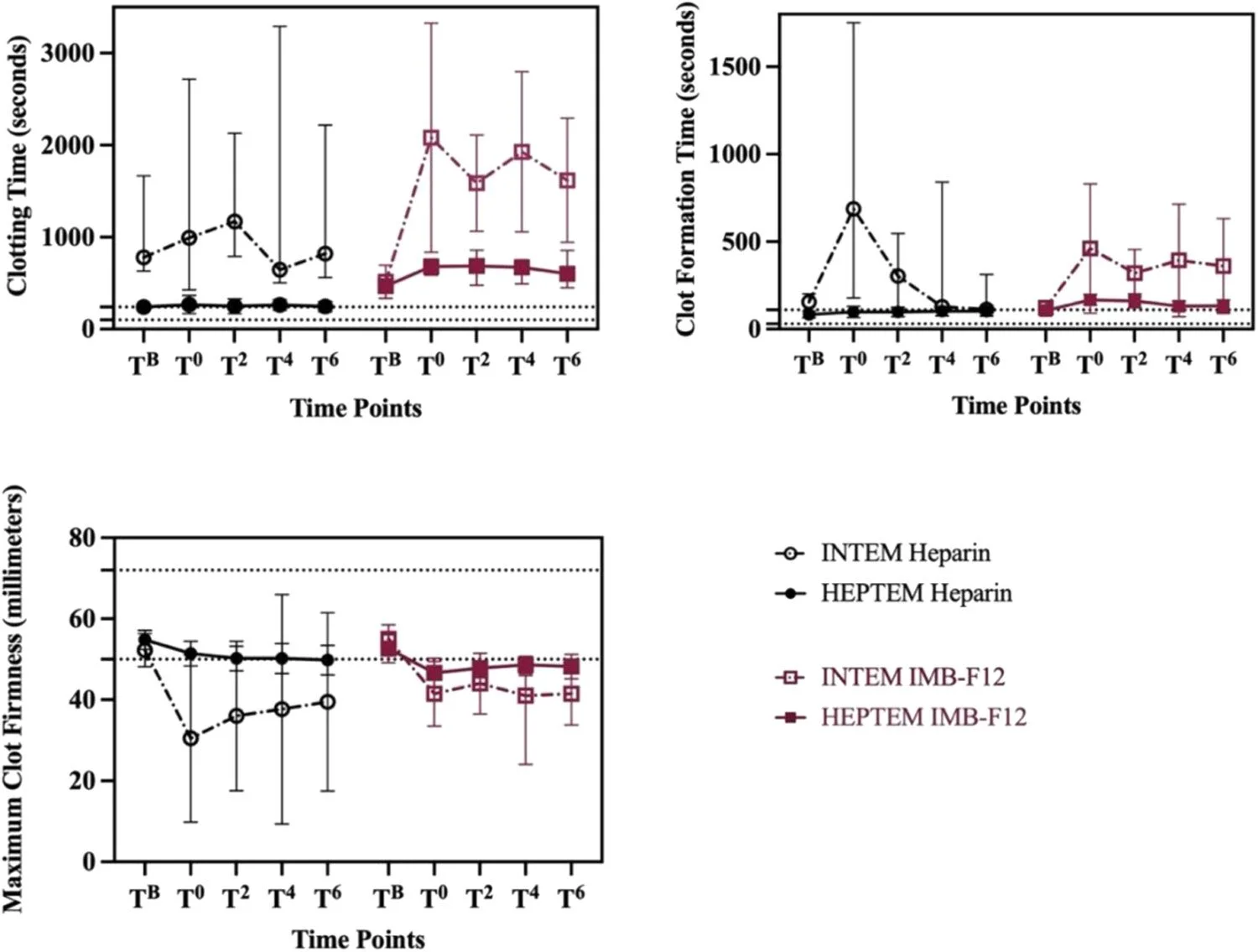The search for safer anticoagulation in ECMO
When patients are critically ill and their hearts or lungs can no longer function properly, Extracorporeal Membrane Oxygenation (ECMO) can provide vital life support. However, as Dr Simon de Veer from the University of Queensland’s Institute for Molecular Bioscience (IMB) explains, managing ECMO is not without its challenges, particularly when it comes to preventing dangerous blood clots.
"ECMO involves pumping blood from the body, through tubing, to an oxygenator where gas exchange can occur, then the blood is pumped back into the patient’s circulatory system," said Dr de Veer.
"The major challenge is that when blood comes in contact with external surfaces, like tubing or devices in the ECMO circuit, proteins in the blood can be activated and start forming clots. To counter this, patients are treated with anticoagulants.
“If you’re having a blood test, for example, the vial that the blood sample is collected in is contains an anticoagulant to stop the blood from clotting. Likewise, ECMO patients are treated with an anticoagulant, usually heparin, to stop the blood from clotting in the ECMO circuit.”
However, traditional anticoagulants come with their own risks.
“Clotting can be problematic at the wrong time or place, but it is also absolutely vital for preventing blood loss after injury.
"For a long time, there were no anticoagulants that could differentiate between disease-related clotting and injury-related clotting. As a result, patients often face a heightened risk of bleeding complications.”
This inspired the search for an alternative drug, with researchers turning their attention to a cyclic peptide found in the seeds of Momordica cochinchinensis, a tropical fruit vine.
"We discovered that this natural peptide inhibits factor XIIa, one of the main proteins activated when blood comes in contact with external surfaces. Importantly, research shows that factor XIIa is important for disease-related clotting but was not involved in injury-related blood clotting,” Dr de Veer explained.
Using CCRG’s ex vivo ECMO circuit, researchers set about comparing the performance of a modified form of the seed-derived factor XIIa inhibitor compared to heparin, the standard of care for ECMO patients.
“We treated donor blood with our engineered factor XIIa inhibitor, loaded it into the bench-top model and then monitored operating parameters including pump speed, flow, and pressure, as well as blood cell counts and platelet function. We also ran clotting tests to determine the level of anticoagulation and which clotting proteins were affected.
“We were able to demonstrate that the inhibition of factor XIIa provides anticoagulation that is as effective as heparin. Interestingly, we also observed some evidence of a synergy between the factor XIIa inhibitor in blood and the coating of the ECMO circuit.”
Research continues with a focus on refining the inhibitor for in vivo studies.
“The optimised inhibitor was shown to be highly effective at blocking factor XIIa-initiated clotting in human plasma, but has no activity on injury-related clotting - this will be important to explore further in future studies.
"These experiments will bring us even closer to eventual clinical use," Dr de Veer said, highlighting a future where ECMO patients — and many others who rely on anticoagulants — could benefit from safer, more targeted treatments.
The work was funded by a National Health and Medical Research Council (NHMRC) Development Grant. Read the full paper here.
Anticoagulation during Extracorporeal Membrane Oxygenation (ECMO): A Selective Inhibitor of Activated Factor XII Compared to Heparin in an Ex Vivo Model
Gandini, L., de Veer, S., Chan, C., Passmore, M., Liu, K., Lundon, B., Rachakonda, R., White, N., Rhodes, M., Shanahan, E., Yap, K., See Hoe, L., Semenzin, C., Li Bassi, G., Fraser, J., Craik, D., Suen, J. American Chemical Society.
Abstract: Extracorporeal membrane oxygenation (ECMO) is a form of life support for critically ill patients with severe respiratory or cardiac failure. Interactions between patient blood and ECMO biomaterials increase the risk of thrombosis, necessitating concurrent anticoagulation treatment, with the standard of care being heparin. However, hemostatic complications such as thrombosis and bleeding remain prevalent. Activated factor XII (FXIIa) inhibitors are selective anticoagulants and offer a potential alternative to heparin. We aimed to evaluate the efficacy of IMB-F12, a cyclotide-based FXIIa inhibitor, in human blood using an ex vivo ECMO model.

